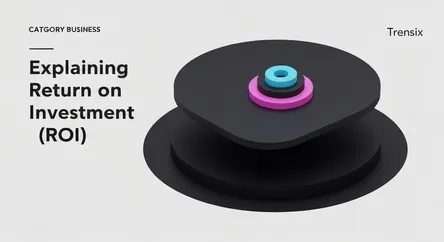Business
Explaining Return on Investment (ROI)

Discover Return on Investment (ROI), the essential metric for evaluating the profitability of an investment and guiding smart financial decisions.
What is it?
Return on Investment (ROI) is a fundamental performance metric used to evaluate the efficiency or profitability of an investment. It measures the amount of return on a particular investment, relative to the investment's cost. To calculate ROI, the net profit from an investment is divided by the original cost of the investment, and the result is expressed as a percentage. The formula is: ROI = (Net Profit / Cost of Investment) x 100. A positive ROI indicates a net gain, while a negative ROI signifies a net loss. It's a versatile tool for comparing the attractiveness of different investment opportunities.
Why is it trending?
In today's uncertain economic climate, businesses and individuals are more focused than ever on justifying every expense and investment. ROI has become a critical talking point for validating everything from marketing campaigns and new technology adoption to corporate training programs. With the rise of data analytics, it's easier to track the specific outcomes tied to investments, making ROI calculations more accurate and accessible. Stakeholders and investors are demanding clear proof of value, and ROI provides a straightforward, universally understood measure of financial success and operational efficiency.
How does it affect people?
For business leaders, ROI guides strategic decisions, helping them allocate resources to projects with the highest potential returns. For individual investors, it's a core component of portfolio management, influencing decisions on stocks, real estate, or other assets. On a personal level, the concept of ROI applies to major life choices, such as pursuing higher education or starting a business. It encourages people to think critically about how they use their money and time, pushing them to make choices that will generate the most significant personal or financial benefit over the long term.